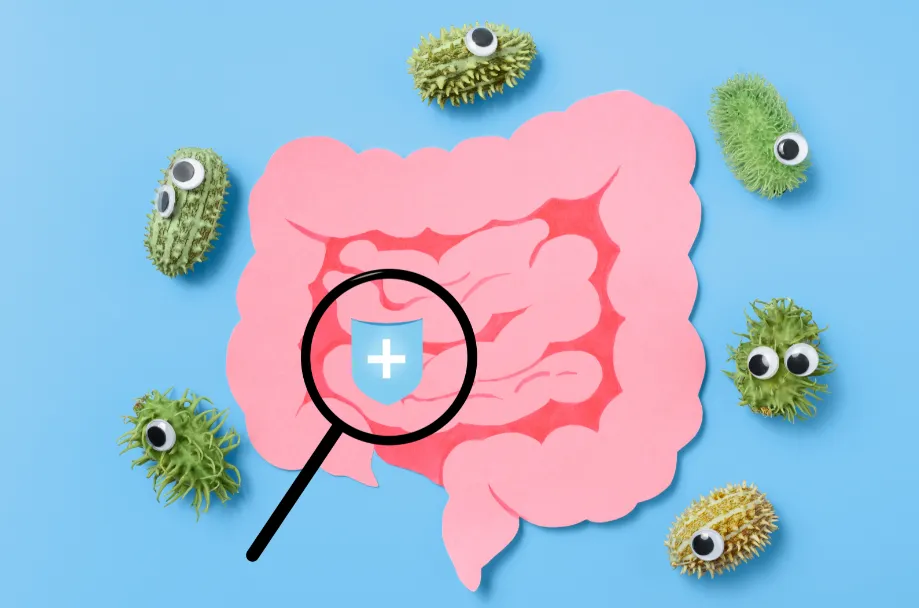Unlocking the Secrets to Better Gut Health
When it comes to gut health, many people think of uncomfortable symptoms like bloating and gas. However, the health of your gut goes beyond just your digestive system. It also affects your physical health, immune system, and even your mental health. Taking care of your gut is essential to live a healthier and happier life. In this blog post, we will summarize the key points from a video interview with Sophie Medlin, a leading expert on gut health, to provide actionable recommendations for improving your gut health.
The Gut's Microcosm: A Balancing Act for Well-being
The gut, short for gastrointestinal tract, is the long tube that starts at the mouth and ends at the anus. Its primary function is to break down food, absorb nutrients, and eliminate waste. However, the gut is also home to trillions of microorganisms known as the gut microbiome. These microorganisms help break down our food and produce metabolites that interact with our bodies.
Navigating the Gut-Brain Axis: Where Mental and Physical Health Converge
A healthy gut means having a well-balanced and diverse range of microorganisms in our digestive tract. This is important because gut health affects digestive disorders and mental and physical health. The gut strongly connects with the brain, known as the gut-brain axis, which influences mental health. The gut also plays a role in our physical health, mainly by interacting with the immune system.
5 Dietary Strategies to a Better Gut
To improve your gut health, here are five things you can add to your diet:
1. Aim for 30 grams of fiber daily:
Fiber acts as a prebiotic, providing food for the good bacteria in the gut. To meet your fiber needs, include fruits, vegetables, whole grains, seeds, and nuts.
2. Aim for two portions of oily fish per week:
Oily fish, such as salmon, mackerel, and sardines, contain omega-3 fatty acids that promote the growth of good bacteria and help control inflammation in the body.
3. Aim for variety in your diet:
Instead of sticking to the same foods daily, aim for variety to encourage diversity in the gut microbiome.
4. Take a probiotic:
Probiotics are foods or supplements that contain live microorganisms intended to improve the gut microbiome. While the evidence is inconclusive, probiotics have positively affected gut health and the gut-brain axis.
5. Aim for 30 different plants per week:
Eating a variety of fruits, vegetables, legumes, grains, nuts, and seeds promotes the growth of different species of bacteria in the gut.

Dietary Pitfalls to Avoid on the Gut Health Journey
On the other hand, here are five things you should avoid or reduce in your diet:
1. Avoid artificial sugars:
Artificial sweeteners can disrupt the gut microbiome and negatively affect our health. Limit your intake of artificial sugars.
2. Avoid processed foods:
Processed foods contain additives and preservatives that can disrupt the growth of good bacteria in the gut. Opt for whole, unprocessed foods whenever possible.
3. Cut down on red meat:
Consuming too much red meat is associated with a higher risk of cardiovascular disease and cancer. Aim for no more than three portions of red meat per week.
4. Avoid counting calories:
While counting calories may be helpful for weight loss or muscle building, it doesn't necessarily reflect the nutritional value of the food. Instead, focus on the quality and variety of your diet.
5. Avoid diet fads and detoxes:
Many diet trends and detoxes can be misleading and may not have any scientific basis. Be cautious of following these trends and focus on a balanced and varied diet instead.
Conclusion
Improving your gut health is essential for overall well-being. By following these recommendations and taking care of your gut, you can improve your digestive system, mental health, and physical health. Remember to consult with a healthcare professional or registered dietitian for personalized advice.
Here are some great articles on gut health:
